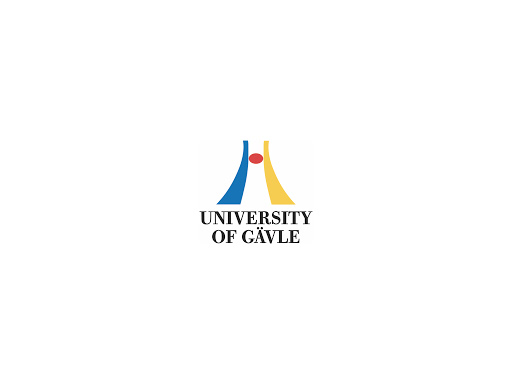Gävle University College

Education and Research at a Scenic Campus
Högskolan i Gävle has approximately 14 500 students, more than 50 study programmes and second-cycle programmes, about 1 000 courses in humanities, social and natural sciences and technology.
Research Profiles
Built Environment and Health-promoting Working Life are the general research profiles of the higher education institution. Important parts included are Spatial Planning with a specialisation in Sustainable Built Environment and Musculoskeletal Disorders with the purpose to prevent work-related injuries. In 2010, the higher education institution received permission to carry out third-cycle programmes in the profile area of Built Environment.
The higher education institution has applied for permission to carry out third-cycle programmes in technology, humanities and social sciences.
Distance Education
Earlier than the more traditional universities and higher education institutions, we have adapted the programmes to the demands of the market and dared to try new types of teaching e g different forms of distance education. Today, Högskolan i Gävle is one of Sweden's leading higher education institutions when it comes to distance education. Certain distance educations have meetings on one of the campus sites, others are based on modern IT support only and are therefore independent on which city you are in. The wide range of distance courses enables students to live in the home town and still carry out academic studies.
Campus
Our campuses at Kungsbäck in Gävle offer a lovely study environment with all programmes gathered in one place. A place of knowledge only a few minutes from the centre.
The higher education institution is located in a scenic area with Gävle River and the Boulogner Forest as the closest neighbours. The carefully re-built regiment barracks have created a gathered campus where the distance between students, teachers and researchers is close.
A higher education institution with regional connections and a contact network reaching all over the world.
Landmark dates
Högskolan i Gävle has approximately 14 500 students, more than 50 study programmes and second-cycle programmes, about 1 000 courses in humanities, social and natural sciences and technology.
Research Profiles
Built Environment and Health-promoting Working Life are the general research profiles of the higher education institution. Important parts included are Spatial Planning with a specialisation in Sustainable Built Environment and Musculoskeletal Disorders with the purpose to prevent work-related injuries. In 2010, the higher education institution received permission to carry out third-cycle programmes in the profile area of Built Environment.
The higher education institution has applied for permission to carry out third-cycle programmes in technology, humanities and social sciences.
Distance Education
Earlier than the more traditional universities and higher education institutions, we have adapted the programmes to the demands of the market and dared to try new types of teaching e g different forms of distance education. Today, Högskolan i Gävle is one of Sweden's leading higher education institutions when it comes to distance education. Certain distance educations have meetings on one of the campus sites, others are based on modern IT support only and are therefore independent on which city you are in. The wide range of distance courses enables students to live in the home town and still carry out academic studies.
Campus
Our campuses at Kungsbäck in Gävle offer a lovely study environment with all programmes gathered in one place. A place of knowledge only a few minutes from the centre.
The higher education institution is located in a scenic area with Gävle River and the Boulogner Forest as the closest neighbours. The carefully re-built regiment barracks have created a gathered campus where the distance between students, teachers and researchers is close.
A higher education institution with regional connections and a contact network reaching all over the world.
Landmark dates
- 1977 Founding of the university
- 1996 Inauguration of the new campus
- 1999 Addition of Department of Caring Sciences and Sociology
- 2000 Addition of Built Environment Research Division, formerly affiliated with the Royal Institute of Technology
- 2003 Addition of the Centre for Musculoskeletal research
- 2004 Awarded Environmental Certification ISO 14001 standard
- 2006 Inauguration of the new University library